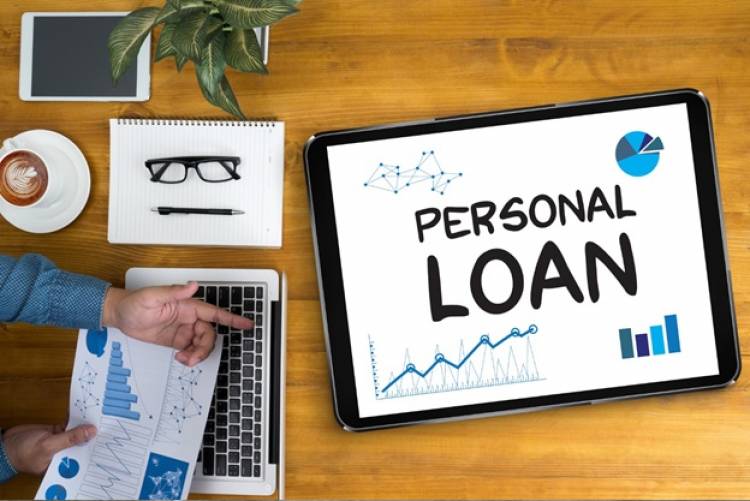
7 Questions to Ask Yourself Before You Submit a Personal Loan Application
Did you know that in 2020, consumers in the United States owed $323.55 billion in personal loans? That represents a 6% increase in personal loan debt from the year before.
So, there's no question about it: personal loans are undoubtedly becoming more popular.
That doesn't mean everyone who applies for a personal loan gets approved, though. In fact, in a 2020 survey, 21% of participants said their credit applications got denied. The reason was that they had a credit score deemed too low by creditors.
Unfortunately, that can happen to your personal loan application, too.
So, before you send in your application, take the time to first run through the questions listed below. They can help you decide if a personal loan is right for you, and if so, what you can do to boost your odds of securing one.
1. Do I Really Need a Loan?
According to the folks at Plenti, you can get a loan for almost anything you may need funds for. For instance, you can take out a wedding loan, a travel loan, a home renovation loan, or even a solar loan.
However, that doesn't always make personal loans a necessity. So, before you even fill out loan application forms, ask yourself why you're opting for one in the first place.
Is it because you have no cash at hand, but you need funds for a health emergency? Maybe you need to repair your roof after a storm blew off parts of it.
Those are some situations wherein your need for a personal loan may be justifiable.
After all, you shouldn't risk your health by putting off check-ups or skipping meds. So you know, medication non-adherence can make you even sicker. In fact, it even costs the US an estimated $100 billion in preventable healthcare costs every year.
Neither should you wait to fix severe roof damage, as doing so can compromise your entire home. For instance, if another storm hits, your damaged roof may leak so much or, worse, even collapse.
Even if your roof only has minor leaks, the water that penetrates can give rise to mold growth. Molds, in turn, can cause further damage to your home as they feed on its structural components. What's even worse is that mold can cause health problems in folks with or without allergies.
If the reason you want to take out a loan isn't an emergency, though, you may want to think twice before you apply. The same goes if your reason isn't a necessity but more of a desire that can wait.
2. Can I Afford to Take On a New Loan?
Whether the loan is for a need or a want, ensure your finances can accommodate new debt. Keep in mind that whenever you take out a loan, you'd need to pay back more than the principal or the amount you'd borrow. You'd also have to pay interest, which is a percentage of the principal amount.
Let's say you make $5,000 a month, $4,500 of which goes toward necessities and non-essential expenses. This puts your discretionary income (money you can invest, save, or spend on other things) at $500.
If you're going to take out a loan, its monthly payments should be less than $500. Any higher than that, and the loan will no longer be affordable.
3. Am I Prepared to Pay for a Loan's Interest Fees?
In the US, the average interest rate for a personal loan with a term of 24 months was 9.58% in May 2021. However, since that's only the average, your interest rate could still be much higher or lower.
For the sake of example, though, let's say you get a 10% interest rate on an online personal loan application. Let's also assume you'd like to borrow $20,000 for a term of 24 months.
If you get a fixed rate, you'll pay $2,000 per year on interest alone, for a total of $4,000 for 2 years. So, for the principal and interest fees alone, you'd owe the lender $24,000. In this case, your repayments would sum up to $1,000 per month, which you'd make for 24 months.
Now, ask yourself if your finances can withstand that $1,000 deduction every month for the next two years. If you're sure that it can, then you can go through the rest of the personal loan application process.
4. Would I Be Able to Pay Back the Lender on Time?
In many cases, the due date of a personal loan is set on the day you receive the principal.
For example, let's say your lender disburses your borrowed funds on the 20th of September. So your first due date would likely be on the 20th of October, the second on the 20th of November, and so on.
Before you sign the loan contract, though, make sure you first factor in when you typically get paid at work. If it's after the 20th of the month, you may find it hard to make your monthly loan payments on or before their due date.
Fortunately, some lenders allow borrowers to choose their due dates. So, make sure that you negotiate this date with your lender before you sign the dotted line. Otherwise, you may end up paying late fees if you're unable to pay your loan on time.
5. Am I Creditworthy?
Creditworthiness refers to how trustworthy you are in the eyes of lenders. For example, you may be creditworthy if you were never late in repaying your previous debts. You may also be creditworthy if your income is enough to afford a new loan.
Most lenders can judge your creditworthiness by your credit score. To them, you may already be trustworthy if your credit score is good (670 to 739), very good (740 to 799), or excellent (800 to 850).
The good news is that the average credit score in the US rose by 10 points in 2020, reaching a high of 710. As such, it's possible that your score improved too and is now in the good to excellent range. So, you may already be creditworthy to lenders, in which case, you may qualify for a good loan rate.
You can confirm your credit score by asking your credit card companies. Most card issuers share this piece of information for free, so it won't hurt to ask.
6. What Does My Credit Report Look Like to Lenders?
Your credit report documents information about your credit situation and credit activity. Such details include your debt repayments, credit accounts, and debt ratio, among others. Hence, you can expect creditors, including lenders, to pull your report when you apply for a loan.
The thing is, every hard inquiry on your credit report can make your credit score dip a few points. This is fine, so long as the lender approves your loan and you make payments on time. On-time repayments, after all, can boost your credit score.
The problem is if your credit report already contains negative information. In this case, lenders may regard you as someone who's not creditworthy. As a result, your loan may get denied, and since they made a hard inquiry on your report, your credit score will also drop.
So, before you apply for a new loan, you should review your credit report first. Don't worry, though, as you can get a copy of your report for free once a year if you're a US citizen or resident.
Make sure that your report is up-to-date and only contains factual information. If it shows any error, especially a negative item, dispute it right away to get it corrected. Once it's free of erroneous data, you can then try applying for a personal loan.
7. How Much Should I Borrow?
Borrow only what you can afford to pay back. For example, you can use your discretionary income as a gauge. It may even be better if you borrow less than that so that you have money to save or put into your emergency funds.
Suppose you have $500 left as discretionary income every month. In this case, you might want to stick to a personal loan that would only involve monthly repayments of $300. This way, you'd still have at least $200 left to save, invest, or stow away for emergencies.
Using that monthly $300 benchmark, you can borrow $6,000, provided the fixed rate is 10%, and the term is 24 months. In this scenario, your total loan cost would amount to $7,200, spread across 24 payments. Thus, you'd only have to make a monthly repayment of $300 for the duration of your loan contract.
Always Think Twice Before Completing a Personal Loan Application
There you have it, seven of the most crucial questions to ask before you send in a personal loan application. It's best not to skip even one of them, as they can all help you assess the pros and cons of getting a personal loan. However, if you get a low-interest rate offer and you can afford to take on new debt, then, by all means, send in those forms.
Interested in even more tips and tricks to help you become financially savvier? Then feel free to have a look at our other educational blog posts!













